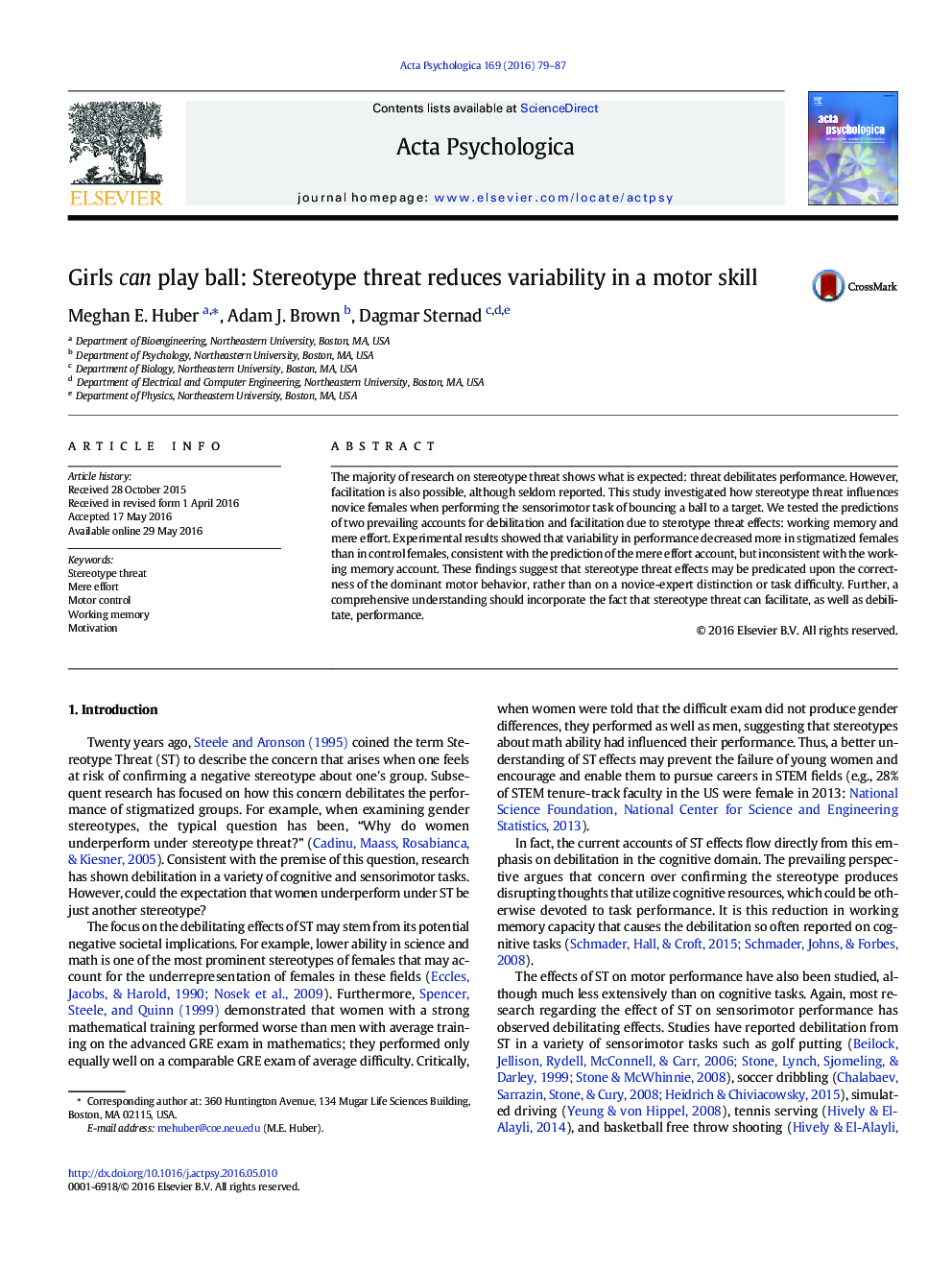| کد مقاله | کد نشریه | سال انتشار | مقاله انگلیسی | نسخه تمام متن |
|---|---|---|---|---|
| 919625 | 1473589 | 2016 | 9 صفحه PDF | دانلود رایگان |
• We examined the effect of stereotype threat on novices in virtual ball bouncing task.
• Mere effort predicted facilitated performance of stigmatized females.
• Stereotype threat decreased variability of error in stigmatized females.
• Accounts of stereotype threat must include its facilitating and debilitating effects.
The majority of research on stereotype threat shows what is expected: threat debilitates performance. However, facilitation is also possible, although seldom reported. This study investigated how stereotype threat influences novice females when performing the sensorimotor task of bouncing a ball to a target. We tested the predictions of two prevailing accounts for debilitation and facilitation due to sterotype threat effects: working memory and mere effort. Experimental results showed that variability in performance decreased more in stigmatized females than in control females, consistent with the prediction of the mere effort account, but inconsistent with the working memory account. These findings suggest that stereotype threat effects may be predicated upon the correctness of the dominant motor behavior, rather than on a novice-expert distinction or task difficulty. Further, a comprehensive understanding should incorporate the fact that stereotype threat can facilitate, as well as debilitate, performance.
Journal: Acta Psychologica - Volume 169, September 2016, Pages 79–87
